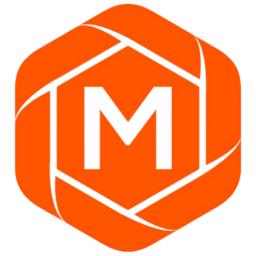Docker Reference Sheet
Complete guide to Docker commands covering installation, image management, container operations, Docker Hub integration, and general system commands.
Free account required
Table of Contents
What is Docker?
Docker allows you to package and run an application in a container, which is a loosely isolated environment. Because of the isolation and security, you can run multiple containers on a single host at the same time. Containers are lightweight and contain everything needed to run the application, eliminating the need to rely on what is currently installed on the host. You can easily share containers while working, and you can ensure that everyone with whom you share gets the same container that works in the same way.
Docker Installation
Docker Desktop is available for Mac, Linux and Windows
View example projects that use Docker
Docker Images
Docker images are a lightweight, standalone, executable package of software that includes everything needed to run an application: code, runtime, system tools, system libraries and settings.
Build an Image from a Dockerfile
$ docker build -t <image_name>Build an Image from a Dockerfile without the cache
$ docker build -t <image_name> . --no-cacheList local images
$ docker imagesDelete an Image
$ docker rmi <image_name>Remove all unused images
$ docker image pruneDocker Hub
Docker Hub is a service provided by Docker for finding and sharing container images with your team. Learn more and find images at:
Login into Docker
$ docker login -u <username>Publish an image to Docker Hub
$ docker push <username>/<image_name>Search Hub for an image
$ docker search <image_name>Pull an image from a Docker Hub
$ docker pull <image_name>Push an image to Docker Hub
$ docker push <image_name>Logout from Docker Hub
$ docker logoutDocker General Commands
Docker Hub is a service provided by Docker for finding and sharing container images with your team. Learn more and find images at:
Start the docker daemon
$ docker -dGet help with Docker. Can also use --help on all subcommands
$ docker --helpDisplay system-wide information
$ docker infoDocker Containers
A container is a runtime instance of a docker image. A container will always run the same, regardless of the infrastructure. Containers isolate software from its environment and ensure that it works uniformly despite differences between development and staging.
Create and run a container from an image, with a custom name
$ docker run --name <container_name> <image_name>Run a container with and publish a container's port(s) to the host
$ docker run -p <host_port>:<container_port> <image_name>Run a container in the background
$ docker run -d <image_name>Start or stop an existing container
$ docker start|stop <container_name> (or <container-id>)Remove a stopped container
$ docker rm <container_name>Open a shell inside a running container
$ docker exec -it <container_name> shFetch and follow the logs of a container
$ docker logs -f <container_name>To inspect a running container
$ docker inspect <container_name> (or <container_id>)To list currently running containers
$ docker psList all docker containers (running and stopped)
$ docker ps --allView resource usage stats
$ docker container statsOptimize Your Docker Deployments
Looking for the best VPS to run your Docker containers? Explore our curated VPS providers, check out our comprehensive benchmarks, and compare hosting performance to find the perfect infrastructure for your containerized applications.



